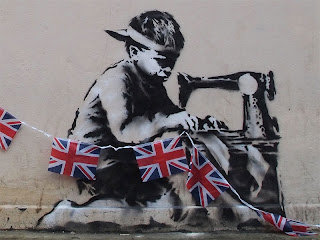I was 17 when I personally first encountered censorship. I produced a school play in the late 1980s which reached the finals of a play festival in Johannesburg.
Unbeknown to me, the play I selected, Egoli, by Matsemela Manaka, was banned. The play focused on the hardships under apartheid of two mineworkers, played by black friends at my integrated school. At the time, I was politically naïve. To me, the play simply represented suffering and was an interesting story.
After we had reached the final, which meant the play would be shown to a large audience, I was informed we could not perform it, as it was banned. Our English teacher was then hauled before a censor board. We miraculously received permission to put the play on one more time only. We performed the play and came second. I believe we lost because of the play's political content, but I am biased.
My story is minor compared with the censorship many artists experienced under apartheid. Dozens fled the country because the State disapproved of their art. Some were killed. Yet my story also highlights how the apartheid State tried to regulate all aspects of life, even trivially involving itself with a schoolboy.
But South Africa has changed. The Constitution protects artistic expression. The African National Congress (ANC) was instrumental in achieving this. However, given its approach to the furore over Brett Murray's painting, The Spear, many are asking if the party is now rolling back these freedoms.
Murray's painting is distasteful and, no doubt, President Jacob Zuma and his family felt offended. But does this justify mobilising State and political party resources to deal with the President's feelings? If Zuma felt affronted, he could have sued for defamation. Instead, he turned the matter into a national issue.
I accept that the painting may represent a deep-seated racism to some, and many whites still fail to acknowledge the pain caused by apartheid. But, if these are the concerns of the President and the ANC, they should foster national debate on the subject in a sensible and considered way, leading from the front. Instead, as emotions erupted over the painting, the President and the ANC chose to fan the flames.
>The President lectured Murray on his lack of responsibility in exercising his right to expression. However, in my book, the President, who is, after all, the most powerful person in the country, showed a lack of responsibility in dramatically intensifying a volatile situation before calling for debate and understanding.
Over the ten days following the controversy, the ANC released 12 press statements – half these were about the painting. This points to an increasingly self- obsessed party that is losing sight of real issues.
A confident party and a confident President would not concern themselves with a picture hanging in a gallery frequented by a handful of patrons. The ANC and the President chose to make the painting an issue.
Meanwhile, in Syria over 100 people died in a single massacre, many of them children. The ANC, with strong connections to China and Russia, could have used the energies expended on caw-cawing about a painting to help put pressure on Syria, not to mention addressing pressing local issues such as poverty. Instead, the ANC focused on a fictitious representation of the President's penis.
So, like the censors that sought me out over 20 years ago, the ruling elite in South Africa run the risk of trying to micromanage society, vainly believing they can get everyone to think like them.
I hope The Spear debacle is not part of such a trend. However, the President's attempts to censor a painting and calls by senior ANC figures to destroy it point to a party that may be on a precipice. If they step over it, it is only a matter of time before they will be chasing schoolboys around for drawing the President's genitals on a toilet wall.
This article by Brandon Hamber was published on Polity and in the Engineering News on 8 June 2012 as part of the column "Look South". Copyright Brandon Hamber.





